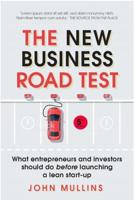Publisher's Synopsis
The global business landscape is changing - rapidly. The past decade has seen major disruptions, including the pandemic, military conflict, and geopolitical tensions, with severe ramifications for multinational organizations that operate as part of the global economy. It is no longer viable to optimize international business activities in tightly coupled value chains too rigid and inflexible to deal with major, often unexpected, disruptions. Instead, rapidly changing environmental conditions require flexible processes and structures to enable adaptation to major events.In this edited volume, researchers at the Copenhagen Business School, associated international scholars, and talented students attempt to make sense of these global political developments, considering how they may affect global business conditions, and how multinational enterprises can navigate them. The volume includes 18 distinct chapters addressing different business and policy challenges posed by an uncertain economic future. The possible consequences of these changes are analyzed in view of emerging trends toward deglobalization between Europe and the rest of the world. These will inevitably affect the structure of global industries, and multinational corporations must find ways to deal effectively with the changing conditions. Many of the contributions frame the issues from a European angle, whereas others present diverse backgrounds outside of European markets, including China, India, and the United States. So, the volume presents 'European Perspectives,' while also engaging with broader economic, political, and cultural views.










